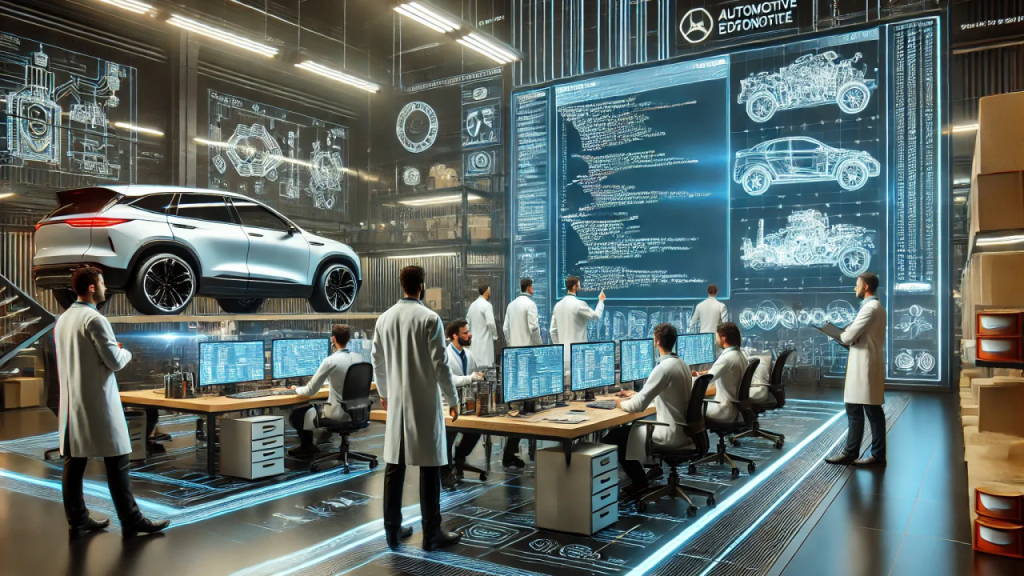Technology is dramatically reshaping the landscape of lemon law disputes. With modern vehicles now equipped with complex diagnostic systems and constant connectivity, both car owners and legal professionals are navigating a rapidly evolving legal landscape. The ability to capture, present, and analyze digital records has never been so crucial for consumers pursuing relief under lemon laws. Suppose you need to file a claim or pursue it. In that case, consulting with a dedicated New York lemon law lawyer is often a beneficial first step in understanding your options in the face of evolving technology. From seamless digital evidence gathering to more efficient legal processes, advancements in artificial intelligence and legislative responses are shaping the future of how defects and disputes are handled. As automakers and consumers steer through legal complexities and new requirements, it’s crucial to stay informed about these trends to safeguard consumer rights.

Advancements in Vehicle Diagnostics
Modern vehicles rely on integrated electronic systems, like the OBD-II platform, which continuously track and store real-time performance data and error codes. These systems provide mechanics and legal experts with precise information about malfunctions and recurring defects, making it easier to determine whether a vehicle should be classified as a “lemon.” For instance, these digital records can track unresolved sensor faults or recurring engine issues, providing an undisputed timeline of problems.
Enhanced Problem Identification
With access to granular data, consumers and their legal representatives can quickly identify complex mechanical issues that may once have been dismissed or downplayed. This level of detail ensures that valid claims are supported by robust, objective evidence. At the same time, it helps reduce ambiguity during dispute resolution, benefiting both sides.
Challenges in Interpretation
Despite the advantages, understanding and presenting this technical data in a courtroom setting can be difficult. Judges and juries might require expert witnesses to clarify what the data indicates about a vehicle’s condition, which can add cost and complexity to the dispute process. The reliance on technology means that both sides must stay informed and potentially retain technical experts to ensure clear and effective communication.
Digital Evidence in Lemon Law Cases
As more aspects of modern life are digitized, so too are the types of evidence relevant to lemon law cases. Service records, repair logs, and even email correspondence between consumers and dealerships are now routinely stored in digital formats. In some cases, GPS or telematics data can be introduced to demonstrate persistent issues or patterns of use that bolster a consumer’s claim. This digital shift, however, raises new concerns over the authenticity and security of evidence. Ensuring that documents are genuine and unaltered is critical, especially since digital files can be easily manipulated. Courts now have to establish procedures for verifying the integrity of electronic records while also accommodating the growing range of data sources. Ultimately, increased digitalization empowers consumers, as they can document and organize their dispute evidence more efficiently.
 AI in Legal Processes
AI in Legal Processes
Artificial intelligence is revolutionizing both vehicle diagnostics and legal practice. AI-driven diagnostic tools can automatically identify and report mechanical problems, while innovative maintenance systems predict failures before they occur, helping to build a case for a defective vehicle. Highly advanced onboard systems even generate detailed logs about repeated malfunctions, which serve as compelling evidence for lemon law claims. Lawyers are also leveraging AI-powered tools to sift through case law and automate research in lemon law matters. These technologies help predict likely case outcomes, enabling lawyers to create informed strategies and draft more effective arguments. Some AI solutions even guide consumers through the claims process, empowering them to file complaints, seek mediation, or identify the best legal assistance quickly and efficiently.
Legislative Updates
The rapid pace of technological innovation is prompting lawmakers to revisit and modernize lemon law regulations across various jurisdictions. New legislative measures are introducing expedited procedures for resolving disputes related to vehicle defects, emphasizing structured mediation and standardized documentation to minimize delays and ensure fair, consistent outcomes. These reforms reflect a broader movement to align consumer protection laws with the realities of today’s increasingly complex automotive technologies. By implementing phased provisions, policymakers aim to create a more efficient framework for addressing issues involving electronic systems and advanced vehicle software. Ongoing legislative updates highlight the importance of strengthening consumer rights in an era of digital transformation. They also emphasize the need to manage large volumes of digital evidence effectively and establish clear accountability for software-related malfunctions or misdiagnoses.
Future Implications
Looking ahead, automotive technology and legal frameworks will continue to evolve in tandem. The emergence of fully autonomous vehicles is expected to introduce a host of new legal questions regarding responsibility for accidents and determining the threshold for defects. Cars equipped with extensive monitoring systems will generate vast amounts of sensitive data on vehicle performance and driver behavior, further entwining technology with legal disputes and raising critical privacy concerns. Consumers pursuing claims may be required to surrender personal or geolocation data as part of the evidence-gathering process, making it more critical than ever to work with a knowledgeable advocate to protect your interests and privacy. With these trends in mind, legal professionals and consumers must remain vigilant and adaptable. Technology is not only creating challenges but also offering powerful tools for advocacy, evidence, and resolution. Staying current with advancements—and choosing legal representation with expertise in both technology and lemon law—is essential for anyone navigating this new landscape.
In summary, technology is revolutionizing all aspects of lemon law disputes. From more precise vehicle diagnostics to more innovative, AI-driven legal strategies and updated legislation addressing digital realities, consumers and legal teams face an era of unprecedented change. Staying informed and proactive is the key to safeguarding your rights in this shifting environment.


